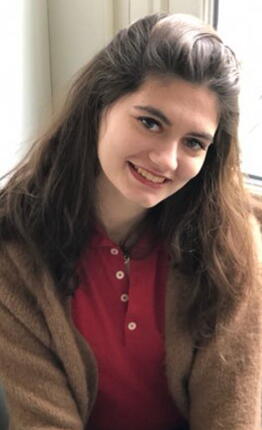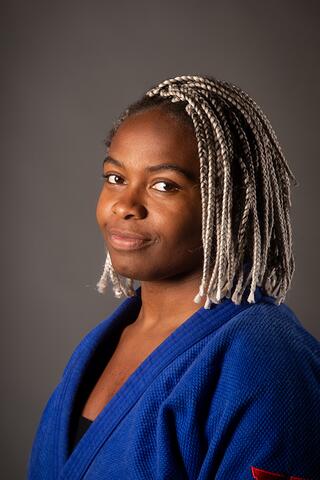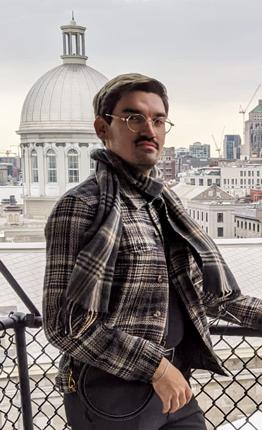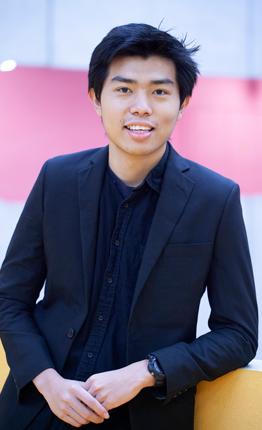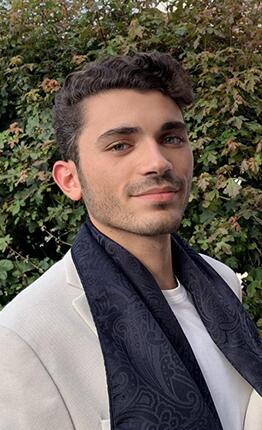
Rayane Dar Alia
Master's student in comparative literature and winner of the Passport to Mobility scholarship program
Literature allows us to better understand things in a difficult world.
Rayane Dar Alia is a master's student in comparative literature in the Faculty of Arts and Humanities at Sorbonne University. This year he benefited from our Passport to Mobility scholarship program, supported by the Malatier Jacquet Foundation, as part of his university exchange to Seville in Spain. There he was able to perfect his knowledge of literature and Spanish, discover and immerse himself in a new culture, and learn about himself.
Rayane Dar Alia is a master's student in comparative literature in the Faculty of Arts and Humanities at Sorbonne University. This year he benefited from our Passport to Mobility scholarship program, supported by the Malatier Jacquet Foundation, as part o
Originally, I did an ES (economic and social) baccalaureate and initially wanted to do speech therapy, so my attraction to languages dates back to secondary school. To fulfil this desire, I did a preparatory semester in Lille, but the training wasn’t for me: what interested me about language was above all its aesthetic aspect. So I switched to a degree in modern literature, following the comparative literature pathway, because I was attracted to the study of languages, not just French but also Spanish. I'd already taken a European class at school, so I wanted to use comparative literature to maintain this openness to other languages in conjunction with other disciplines. The principle of comparative literature - as its name suggests - is to compare two literatures from different languages or cultural areas. This subject also involves comparisons with the natural sciences, such as biology, when studying nature, for example. What I like about this course is above all its multidisciplinary nature.
The University of Lille didn't offer exchanges to Spain or a master's degree in comparative literature, which is why I turned to Sorbonne University, where the master's programme met my expectations in terms of mobility, courses and content.
Literature allows us to better understand things in a difficult world. It's a toolbox that allows us to move forward in life, to better understand ourselves and our environment. Generally speaking, I'm very close to art, and I believe that literature has its place in society: it allows us to live!
Why did you decide to move to Seville?
I arrived in Seville in September 2022 and finished my year there last June. I've always been very attracted to Spanish, a language I really enjoy! This year I'm doing my dissertation on Federico Garcia Lorca, who is Andalusian. So it seemed only natural that I should immerse myself in the heart of his native land, thanks to the partnership between Sorbonne University and the University of Seville. This enabled me to be at the centre of Andalusian identity, the subject of my study, in comparison with Algeria.
This mobility has also enabled me to improve my Spanish and prepare for the agrégation modern language test. Taking courses in Spanish literature, in the language itself, helped me to understand its literary aspects much more fluently, so I'll be able to approach the exam with more confidence.
The courses in Spain are very different from my experience in France. The biggest difference is that we're used to a monographic approach: we study one author, one work, in depth, whereas Spain has a more global approach to literature, a panorama. We study six works or an entire movement. Another difference is the division of classes into practicas, the equivalent of our tutorials, with group or individual work on presentations, analysis of manuscripts, etc., and theory classes, the equivalent of our lectures. The way literature is taught is therefore quite similar, but this more panoramic approach can be found in other courses, such as history.
There's also a big difference in the way courses are organised: there are fewer of them in Spain, but they account for a greater volume of teaching time. This also explains the panoramas! You'll have 5 hours of lessons on one subject, as opposed to two or three in France. In the end, the workload is pretty much the same.
What does the Passport to Mobility grant mean to you?
Above all, the grant meant I could pay my rent, which is not insignificant, but it also enabled me to do my shopping. Before you go on a trip, you don't necessarily realise how much you're going to spend, even if it's just on your mobile phone. There are always small expenses that add up, not to mention inflation...
As far as my studies are concerned, I'd like to come back to the question of panoramas: the format of the courses means that we have to buy 4 to 6 books per subject. Books are more expensive in Spain, costing around 15 euros in paperback. So each course we take is expensive... So this help has been more than welcome and has brought me more peace of mind during this year, in terms of accommodation, food and study.
Describe your current plans.
I returned to France at the end of June, and I'm coming back to Sorbonne University in September to prepare for the agrégation exam. I hope to pass! It's a very demanding and difficult exam, and I hope to pass this year - I won't be satisfied with failure and I intend to persevere. I think taking the exam in a setting that I already know increases my chances, and I have several friends who will be able to support me, so I won't be alone!
After that, I'm planning to teach at secondary level and then, why not, at university by doing a doctorate, although that's a long way off. My travel has also made me want to work abroad, as a French teacher in a Spanish-speaking country. I'm planning to come back to Spain, because I really enjoyed living in Seville: the cliché of warm weather in Spain is no myth!
What message would you have for the sponsors and donors who are currently involved in funding the Passport scholarship program, and more generally for any sponsors or donors considering supporting the program?
Don't hesitate! This bursary is a wonderful project and an excellent way of supporting students. The Covid crisis and inflation have shown us just how difficult student life can be. It's getting harder and harder to succeed in your studies and still have the psychological and financial means to do so.
So your support is not merely financial, it's also moral: it promotes equal opportunities and legitimises the desire of students in difficult situations to continue their studies even though they lack the means to do so. I commend this initiative, because not everyone can afford to travel. Studying abroad means opening up to the world, developing educational, friendly and institutional exchanges. It's a unique experience: thank you for encouraging it and ensuring that international mobility continues.
Vous pouvez soutenir le programme de bourses Passeport de la Fondation Sorbonne Université
La situation personnelle d'une étudiante ou d'un étudiant méritant ne devrait jamais être un frein à la pleine expression de ses potentiels. Les jeunes talents de Sorbonne Université qui connaissent des difficultés financières sont soutenus tout au long de leur parcours pour maximiser leur chance de réussite à l’université. Pour répondre à ces enjeux, la Fondation Sorbonne Université a mis en place plusieurs programmes de bourses : pour le master, pour la mobilité, pour les JO et pour les sciences Pluri'elles.
Jeanne Lebatard-Pontet
Etudiante en 2ème année en filière « SPRINT » et lauréate du programme de bourses Passeport pour les sciences Pluri’elles
Soutenir les étudiantes et étudiants, c’est un engagement sur lequel on ne peut pas se tromper, car ils sont l’avenir.
Romane Dicko
Judoka and mathematics student
I won the bronze medal at the Tokyo Olympics. This time, I'd like to go for gold!
Franck Calard
Alumnus and recipient of Sorbonne University’s Passport to Mobility scholarship
Participating in international mobility enables students and professors alike to open their eyes to fields that were previously unknown to them.
Theophilus Yoel Wiryanto
A Double Major in Mechanics and Electronics, Electrical Energy, Automation
Nothing is impossible for those who persevere!

